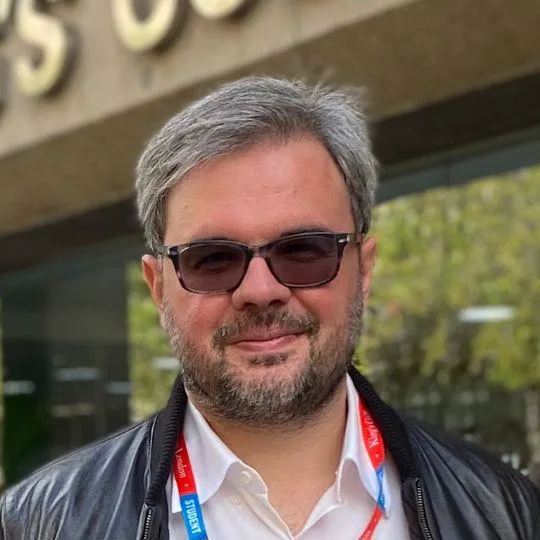
Biography
Rafael holds a MA in Communications Theory (2009) and a BA in International Relations (2003) from the University of Brasília, having also attended, in 2002, the Program on Defense Restructuring of the US Naval Postgraduate School and the Brazilian Superior War College.
Born in Recife, he joined the Foreign Service cadres in 2008. From his first posting as chargé d’affaires in the Commercial Office of Brazil in Taipei (2011), he headed the Trade & Investment Promotion sectors in Bangkok (2011-2014) and Hong Kong (2017-2022), being then appointed Minister-Counsellor in São Tomé & Príncipe (2022-2024). He is currently serving in the Mission to the Community of Portuguese Language Countries, in Lisbon.
His professional experience in military and dual-use technologies has led to his nomination as a lecturer in military courses, and for the Brazil-Sweden Executive Committee on Aeronautical Cooperation, overseeing the ‘Gripen E’ project (2015-2017). He was awarded the Order of Aeronautical Merit of Brazil in 2017, and the Peacemaker’s Medal of the Brazilian Army and the Order of Defence Merit, in 2016.
Research Interests
- Defence administration and organisation
- Jointness and integration
- Military and dual-use technologies
- Defence procurement
- Strategic policy and analysis
The inception of the Ministry of Defence (MD) in Brazil, in 1999, came as part of a broader plan by the presidency of Fernando Henrique Cardoso (1995-2002) to modernise the Brazilian state, in what became known as the “managerial reform”. The underlying idea was to bring more rationality to public expense by reproducing an institutional design that had been applied all over the world, merging the administrative structures of the Army, Navy and Air Force into one, more efficient and streamlined. However, 25 years on, how has the MD been accomplishing its original goals of “optimising, modernising and rationalising” the Brazilian military? This research aims to review the implementation of this policy idea, by analysing the administrative framework and its regulations, identifying parameters for assessment and international benchmarks, heeding primary sources (civilian and military decision-makers), and appraising the major obstacles and challenges for the success of these policies.
